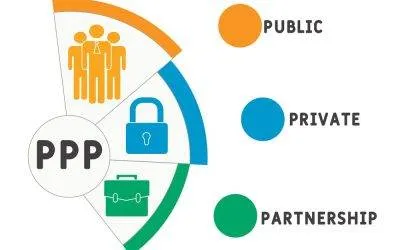Provincial Sales Tax on Services: Understanding its Implications and Mechanisms
In the realm of taxation, the Provincial Sales Tax on services (STS) occupies a distinct position, operating as a levy by the provinces on services, in contrast to the federal government’s sales tax which primarily applies to goods. This article delves into the fundamental aspects of STS, elucidating its modus operandi, the taxpayer’s obligations, and the relationship between provincial and federal authorities in this regard.
Self-Assessment and Compliance
The cornerstone of STS is the principle of self-assessment, self-compliance, and self-reporting, entrusting taxpayers with the responsibility of conducting their tax affairs transparently. Under this system, taxpayers are mandated to issue tax invoices, evaluate their tax liabilities, submit sales tax returns, effect tax payments, maintain comprehensive records of taxable transactions, and adhere to all associated legal obligations. Notably, the revenue authorities retain the prerogative to conduct audits to ensure adherence to these stipulations.
Tax Rates:
Every province has its own sales tax rates on services whih are tabulated below:
Harmonizing Provincial and Federal Perspectives
To avert the specter of double taxation, collaborative agreements are established between provincial and federal authorities to delineate the realm of applicability of STS and federal sales tax. This synergy obviates redundancy and promotes a streamlined approach to taxation, while affording clarity to taxpayers regarding their obligations.
Mechanisms of Attribution and Allocation
In scenarios where a service spans multiple provinces, the service provider is entitled to claim attributed input tax in proportion to the declared taxable value of the service. This mechanism is pivotal in maintaining fairness and accuracy in tax assessments.
Variations in Provincial Tax Schemes
Although there exist nuances differentiating provincial tax schemes, they share a fundamental similarity, occasionally featuring minor adjustments to suit specific regional requirements. Legislative underpinnings for these tax schemes are sourced from Acts promulgated by the respective Provincial Assemblies and reinforced by Statutory Regulatory Orders (SROs).
Navigating the Point of Tax Liability
An intriguing facet of tax law is the precise juncture at which tax liability crystallizes. Within the realm of provincial tax law, two pivotal junctures stand out: the point of destination and the point of origin. The point of destination signifies the culmination of the taxed service.
Reverse Charge Mechanism
In cases where a non-resident person provides a taxable service to a resident person in the course of an economic activity, the obligation to remit the tax is borne by the recipient of the service. This mechanism ensures equitable tax treatment across diverse economic interactions.
Export of Services: A Taxation Paradigm
The export of services, by and large, enjoys exemption from sales tax imposition. However, certain provincial authorities have embraced the practice of levying sales tax on specific categories of services, with notable exceptions for segments such as information technology and chartered accountancy.
Taxable Services: A Defined Sphere
The contours of taxable services are clearly outlined by the Second Schedules of the Provincial Sales Tax Acts. The absence of a negative list of taxable services underscores the comprehensiveness of this enumeration, ensuring that all relevant taxable services are duly accounted for.
Conclusion
The Provincial Sales Tax landscape is a dynamic interplay of self-assessment, collaborative frameworks, and meticulously defined mechanisms. By comprehending the fundamental underpinnings of PST, taxpayers can navigate their obligations with clarity and ensure their compliance with the legal and regulatory framework. This article elucidates the crux of PST, shedding light on its operational tenets and intricacies, thereby fostering a deeper understanding of its role within Pakistan’s taxation framework.

Let’s connect and discover how we can help your business thrive

Why Choose Us?
- Expertise: With years of experience in the field, we have developed a strong expertise in various domains, including accounting, taxation, auditing, and corporate advisory.
-
Client-Centric Approach: We believe in building long-term relationships with our clients based on trust, integrity, and transparency.
-
Comprehensive Services: Whether you are a small business owner, an established corporation, or an individual seeking tax advice, we offer a wide range of services to cater to your needs. From tax planning, audit,corporate adviosry and compliance to financial statement preparation, our holistic approach ensures that all aspects of your financial well-being are taken care of.
-
Local Market Knowledge: Being a local firm, we have an in-depth understanding of the Pakistani market dynamics, regulations, and cultural nuances. This local expertise allows us to offer valuable insights and guidance that can give your business a competitive edge.

Expert insights and industry news
Public-Private Partnerships (PPPs) in Pakistan: A Catalyst for Development
Public-Private Partnerships, often abbreviated as PPPs, are collaborative agreements between the government and private sector entities.
World Bank Initiatives in Pakistan
The World Bank is an international financial institution that provides financial and technical assistance to developing countries worldwide
Unlocking Pakistan’s Infrastructure Potential
Pakistan’s economy has been on an upward trajectory in recent years, and it offers a strategic location for trade due to its proximity to China, India, and Central Asia.
About Us
Usman Rasheed & Co Chartered Accountants is a leading financial advisory and audit firm in Pakistan, having offices in Islamabad, Quetta, Lahore, Karachi, Peshawar & Gilgit. The firm is providing Audit, Tax, Corporate, Financial, Business, Legal & Secretarial Advisory services and other related assistance to local and foreign private, public and other organizations working in Pakistan




